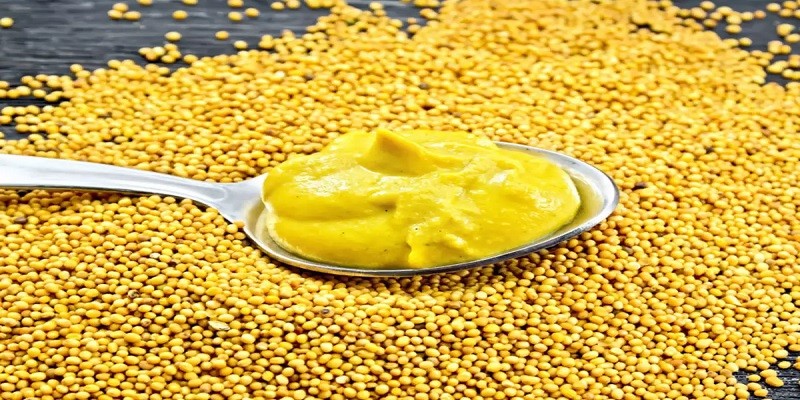Last Updated on June 1, 2024
Yes, you can eat mustard while pregnant. Mustard, in its various forms such as seeds, leaves, and sauce, is generally safe for pregnant women when consumed in moderation. However, excessive consumption can lead to adverse effects, so it is important to regulate intake and consult a healthcare provider if needed.
Mustard is a popular condiment and flavoring agent used in various cuisines worldwide. During pregnancy, dietary choices become crucial for the health of both the mother and the developing baby. This article explores whether mustard is safe to consume during pregnancy, its nutritional benefits, potential risks, and safe consumption practices.
What is Mustard?
Mustard is a condiment made from the seeds of the mustard plant, which belongs to the Brassicaceae family. The seeds can be white/yellow, brown, or black, and are used to make mustard sauce, powder, and oil. Mustard leaves, also known as mustard greens, are edible and rich in nutrients. Mustard is widely used in cooking for its pungent flavor and health benefits.
Nutritional Value of Mustard
| Nutritional Value | Details |
|---|---|
| Calories | 66 kcal per 100g |
| Carbohydrates | 6g per 100g |
| Dietary Fiber | 3g per 100g |
| Protein | 4g per 100g |
| Fat | 3g per 100g |
| Magnesium | 48 mg (11% DV) |
| Potassium | 152 mg (5% DV) |
| Sodium | 1120 mg (49% DV) |
Risks of Eating Mustard During Pregnancy
| Risks | Details |
|---|---|
| Throat Irritation | Excessive consumption can cause throat irritation. |
| Heartburn | May exacerbate heartburn or acid reflux symptoms. |
| Miscarriage | Overconsumption of mustard seeds may lead to miscarriage. |
| Skin Blisters | Can cause skin blisters or irritation in some cases. |
| Fatigue | Excessive intake may lead to fatigue and breathing difficulties. |
Safe Ways to Eat Mustard During Pregnancy
To safely enjoy mustard during pregnancy, consume it in moderation. Use mustard sauce sparingly in sandwiches and salads, and incorporate mustard seeds and leaves into cooked dishes. Avoid mustard oil due to its high erucic acid content, which can be harmful. Always consult your healthcare provider before making significant dietary changes.
Alternatives to Mustard During Pregnancy
| Alternatives | Precautions |
|---|---|
| Balsamic Vinaigrette | Ensure it is low in sodium and free from added sugars. |
| Cottage Cheese | Use low-fat versions to reduce calorie and fat intake. |
| Hummus | Choose varieties with minimal added salt and preservatives. |
Expert Tips
- Moderation is Key: “Consuming mustard in moderation is generally safe during pregnancy”.
- Consult Your Doctor: “Always consult your healthcare provider before adding mustard seeds to your diet”
- Avoid Mustard Oil: “Mustard oil should not be consumed during pregnancy due to its erucic acid content”.
FAQs
Can I eat mustard seeds during pregnancy?
Yes, mustard seeds can be consumed in moderation during pregnancy. However, excessive intake may lead to adverse effects such as throat irritation and miscarriage.
Is mustard oil safe during pregnancy?
No, mustard oil is not safe during pregnancy due to its high erucic acid content, which can cause heart and kidney damage.
Can I eat honey mustard while pregnant?
Yes, honey mustard is generally safe to consume during pregnancy. Ensure it is made with pasteurized ingredients to avoid any risk of bacterial contamination.
Does craving mustard indicate the baby’s gender?
No, there is no scientific evidence to support the idea that cravings for mustard or any other food can predict the baby’s gender.
Can mustard help with pregnancy-related constipation?
Yes, mustard contains mucilage, which can help relieve constipation symptoms. However, it should be consumed in moderation.
Conclusion
Mustard can be a flavorful and nutritious addition to a pregnancy diet when consumed in moderation. It offers several health benefits, including improved digestion and enhanced immunity. However, excessive consumption can lead to adverse effects. Always consult your healthcare provider before making significant dietary changes to ensure the safety and well-being of both mother and baby.

